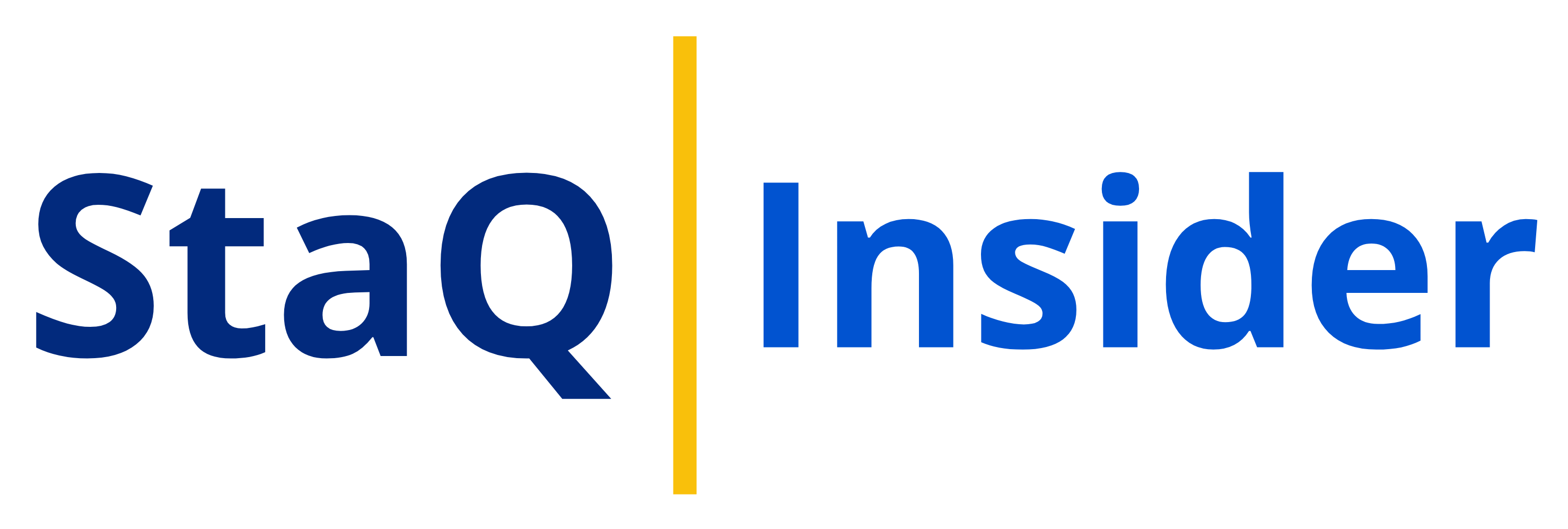Organic search is the lifeblood of ECommerce success, driving a large share of revenue for online stores. But to capitalize on this traffic, your website needs to rank at the top of search results. That’s where SEO audit tools come into play. By leveraging the right SEO audit tools, you can uncover hidden opportunities, streamline your optimization efforts, and stay ahead of the competition.
Let’s take a more in-depth look at SEO Audit Tools!
What is ECommerce SEO audit?
An ECommerce SEO audit is a comprehensive analysis and evaluation of an online store’s website to identify any issues or areas for improvement that may be impacting its search engine visibility and rankings.
What an SEO audit entails for ECommerce websites:
- Crawling and indexing the entire site to understand how search engines view it
- Analyzing the technical setup (site structure, URLs, redirects, site speed, mobile-friendliness, etc.)
- Reviewing on-page optimization factors like titles, meta descriptions, header tags, content, etc.
- Evaluating off-page factors like backlink profile, local citations, online reviews, etc.
- Checking for duplicate content, thin/low-quality pages, sitemap issues, and other potential problems
Essentially, an ECommerce SEO audit helps you:
- Increase organic traffic: Attract more potential customers who are actively searching for products like yours.
- Boost conversion rates: Turn those website visitors into paying customers by optimizing your product pages and user experience.
- Rank higher for relevant keywords: The audit helps you identify and target the right keywords so your store shows up higher in search results for terms people are actively using.
- Enhance brand visibility and credibility: A well-optimized website with strong SEO builds trust and positions you as an authority in your industry.
- Cost-effective marketing strategy: SEO is an organic approach that can be more cost-effective compared to relying solely on paid advertising.
Hence, by conducting thorough SEO audits, ECommerce sites can diagnose and resolve impediments to high search rankings, while uncovering ways to improve visibility for high-value keywords and product pages.
Why is an SEO Audit Important for an ECommerce website?
An SEO audit is crucial for your ecommerce store because it’s like a roadmap to better rankings and sales. It exposes hidden strengths to leverage and weaknesses to fix, ultimately driving more organic traffic, boosting conversions, and saving you money on marketing compared to paid ads.
What are SEO Audit Tools? How does it work?
SEO audit tools are software platforms designed to help website owners and digital marketers analyze and evaluate the search engine optimization (SEO) health of their websites. These tools work by crawling and inspecting a website, gathering data on various SEO factors, and providing detailed reports and recommendations for improvement.
Here’s a general overview of how SEO audit tools work:
- Crawling & Indexing: Crawls and indexes your entire website like a search engine.
- Technical Analysis: Checks for technical issues hindering SEO performance like broken links, site speed, and mobile-friendliness.
- On-Page Optimization: Scans content for SEO best practices – keywords, titles, and meta descriptions.
- Backlink Analysis: Evaluates your backlink profile and authority.
- Reporting: Provides comprehensive reports highlighting issues and recommended optimizations.
- Monitoring & Tracking: Allows scheduling regular audits and tracking progress over time.
- Integrations: Integrates with marketing tools for a streamlined workflow.
By leveraging SEO audit tools, you gain valuable insights into your website’s health and receive a clear roadmap to improve its search ranking.
Benefits of SEO Audit Tools in ECommerce Website Optimisation
In the world of ECommerce, every edge you can get over the competition is crucial. SEO audit tools are like secret weapons in your arsenal, offering a wealth of benefits for optimizing your ECommerce website:
| Feature | Description |
| Laser-Focused Optimization | Audit tools pinpoint the exact areas of your website that need improvement, saving you time and effort compared to guesswork. |
| Data-Driven Decisions | They provide concrete data and insights to back your SEO strategy, ensuring you’re making data-driven decisions for maximum impact. |
| Uncover Hidden Gems | The tools can unearth hidden opportunities for improvement you might have missed, like untapped keyword potential or technical issues hindering your ranking. |
| Competitor Analysis | Some tools offer competitor analysis features, allowing you to see how your SEO stacks up against the competition and identify areas where you can outrank them. |
| Prioritization Powerhouse | Audit reports prioritize the most critical issues to tackle first, ensuring you’re focusing on the areas that will have the biggest impact on your ranking. |
| Improved User Experience | By addressing technical SEO issues like slow loading speeds and mobile-friendliness, you create a better user experience for potential customers, leading to higher conversion rates. |
| Cost-Effective SEO | While some tools require investment, they can save you money in the long run compared to hiring an SEO specialist. They empower you to take control of your website’s optimization. |
| Measurable Progress | By tracking your SEO performance over time through audit reports, you can measure the effectiveness of your optimization efforts and celebrate your progress. |
What Essential Features Should ECommerce SEO Audit Tools Absolutely Have?
When it comes to auditing the technical SEO prowess of an ECommerce website, there are several essential features that a comprehensive audit tool should absolutely possess. These features act as the navigator’s compass, guiding the digital vessel towards the uncharted waters of online visibility and search engine dominance.
Technical SEO:
- Crawlability Analysis: Identifies crawl errors and issues preventing search engines from indexing your pages.
- Site Structure Evaluation: Analyzes website structure for clarity and ease of navigation for both search engines and users.
- Mobile-Friendliness Check: Ensures your website offers a seamless experience on mobile devices.
- Broken Link Detection: Discovers broken internal and external links that harm user experience and SEO.
- Page Speed Optimization: Audits page load times and offers suggestions for improvement.
- Secure Connection (HTTPS) Verification: Confirms a secure connection for user trust and SEO benefit.
- Structured Data Analysis: Checks for implementation of structured data markup for richer search results.
On-Page SEO:
- Keyword Research and Analysis: Analyzes your current keyword usage and identifies opportunities for improvement.
- Content Optimization: Evaluates product descriptions and other content for SEO relevance and user engagement.
- Meta Tag Optimization: Audits title tags and meta descriptions for optimal length, keyword inclusion, and click-through rates.
- Image Optimization: Checks for proper image alt text descriptions and efficient file sizes.
- Canonical Tag Detection: Identifies and addresses duplicate content issues through canonical tags.
- Internal Linking Analysis: Evaluates internal linking structure for optimal flow and distribution of link equity.
Additional Features:
- Competitor Analysis: Provides insights into your competitors’ SEO strategies and keyword usage.
- Backlink Analysis (optional): Analyzes the quality and quantity of backlinks pointing to your website (some tools may not offer this).
- Reporting and Prioritization: Generates reports that categorize issues by severity and offer prioritization for SEO efforts.
- Project Management Tools: Provides tools to track progress, assign tasks, and collaborate on SEO improvements (may not be available in all tools).
Remember: This checklist provides a general guideline. The specific features you need may vary depending on the size and complexity of your e-commerce website.

10 Popular SEO Audit Tools For ECommerce Businesses
Here’s a list of 10 SEO audit tools to level up your online store’s search engine presence, along with a brief overview of their features, pros, cons, and pricing:
-
Ahrefs:
- Ahrefs is an industry-standard SEO toolkit offering a comprehensive audit of your ECommerce store’s technical SEO, keyword rankings, competitor analysis, and link building.
- Pricing: Starts at $99/month
- Features:
- Powerful keyword research tools
- In-depth technical SEO audit
- Competitive analysis features
- Backlink checking and link building tools
- Pros:
- Highly detailed reports
- Excellent for competitor research
- All-in-one SEO solution
- Cons:
- Steeper learning curve
- More expensive than some options
-
SEMrush:
- SEMrush is another all-in-one SEO platform that provides in-depth website audits, keyword research, on-page SEO recommendations, and competitive analysis.
- Pricing: Starts at $99.95/month
- Features:
- Comprehensive SEO audit reports
- Keyword research with traffic estimations
- On-page SEO checker
- Competitive traffic analysis
- Pros:
- User-friendly interface
- Wide range of SEO features
- Great for competitor analysis
- Cons:
- Can be expensive for small businesses
- Some features may have limitations on lower plans
-
Moz Pro:
- Moz Pro is a well-established SEO toolset that offers site audits, keyword research, backlink analysis, and competitive SEO comparisons.
- Pricing: Starts at $99/month
- Features:
- On-page SEO optimization recommendations
- Keyword research tool with keyword difficulty score
- Link building tools including Open Site Explorer
- Competitive domain analysis
- Pros:
- Reputable brand with a strong track record
- Helpful beginner resources
- Strong domain authority and link analysis features
- Cons:
- Interface can be cluttered for beginners
- Limited features on lower-tier plans
-
Screaming Frog SEO Spider:
- Screaming Frog is a desktop SEO crawler that helps identify technical SEO issues like broken links, missing meta descriptions, and crawl errors.
- Pricing: Free version with limitations, Paid plans start at £149.95/year (approx $180/year)
- Features:
- Crawls your website to identify technical SEO issues
- Analyzes on-page SEO elements like titles and meta descriptions
- Generates SEO reports
- Pros:
- Powerful free version for basic audits
- Excellent for technical SEO analysis
- User-friendly interface
- Cons:
- Limited features compared to all-in-one SEO tools
- Primarily focused on technical SEO
-
Google Search Console (GSC):
- Google Search Console is a free tool from Google that provides valuable insights into your website’s search performance, technical health, and indexing status.
- Pricing: Free
- Features:
- Submits sitemaps and monitors website indexing
- Identifies crawl errors and technical SEO issues
- Provides keyword performance data
- Pros:
- Free and directly from Google
- Valuable insights into website health and search performance
- Cons:
- Limited features compared to paid SEO tools
- Lacks advanced SEO functionalities
-
Google Analytics (GA):
- Google Analytics is another free tool from Google that offers website traffic analysis, user behavior insights, and conversion tracking. While not strictly an SEO tool, it provides valuable data to inform your SEO strategy.
- Pricing: Free
- Features:
- Tracks website traffic and user behavior
- Provides insights into user acquisition, engagement, and conversion
- Can help you identify areas of your website that need improvement for SEO
- Offers integrations with other Google marketing tools like Search Console
- Pros:
- Free tool with valuable data on website traffic
- Helps you understand how users interact with your website
- Can identify user behavior patterns that might indicate SEO issues (e.g., high bounce rate on specific pages)
- Cons:
- Not a dedicated SEO audit tool
- Lacks features for technical SEO audits or keyword research
-
SE Ranking:
- SE Ranking is a comprehensive SEO platform that provides site audits, keyword research, rank tracking, competitor analysis, and on-page SEO suggestions.
- Pricing: Starts at $39/month
- Features:
- Technical SEO site audits
- Keyword research tool with search volume data
- Rank tracking for monitoring keyword positions
- On-page SEO checker
- Competitor website analysis
- Pros:
- Affordable pricing plans
- User-friendly interface
- Wide range of SEO features
- Cons:
- Limited features on lower-tier plans
- May not be as in-depth as some competitors
-
Sovereign:
- Sovereign is an AI-powered SEO platform that offers site audits, keyword research, content optimization suggestions, and competitor analysis.
- Pricing: Starts at $49/month
- Features:
- Uses AI to identify website SEO issues and opportunities
- Provides keyword research suggestions
- Offers content optimization recommendations
- Analyzes competitor websites
- Pros:
- AI-powered insights can be helpful for identifying SEO weaknesses
- Focuses on content optimization
- Affordable pricing
- Cons:
- relatively recent instrument
- May not have the same brand recognition as established SEO platforms
-
Sitechecker:
- Sitechecker is a cloud-based SEO audit tool that crawls your website to identify technical SEO issues, on-page SEO problems, and performance bottlenecks.
- Pricing: Free plan with limitations, Paid plans start at $23/month
- Features:
- Crawls your website to identify technical and on-page SEO issues
- Analyzes website performance
- Generates SEO reports
- Pros:
- Free plan for basic website audits
- Affordable paid plans
- Easy-to-use interface
- Cons:
- Lacks some advanced features of higher-priced SEO tools
- Primarily focused on technical and on-page SEO
-
Ryte:
- Ryte is a comprehensive SEO platform that offers site audits, keyword research, on-page SEO optimization suggestions, competitor analysis, and backlink monitoring.
- Pricing: Free plan with limitations, Paid plans start at €99/month (approx $105/month)
- Features:
- Comprehensive website audits
- Keyword research tool with search volume data
- On-page SEO optimization recommendations
- Competitor website analysis
- Backlink monitoring
- Pros:
- Free plan for basic website audits
- Wide range of SEO features
- User-friendly interface
- Cons:
- Limited features on the free plan
- Can be expensive for small businesses
These tools can help you identify the technical SEO problems on your eCommerce site and prioritise which ones need to be fixed first.
If you’re feeling overwhelmed trying to choose the perfect SEO Audit Tool to fit your budget, needs, and requirements, StaQ.ai is your answer. We streamline the process, offering tailored recommendations to match your specific criteria, ensuring you find the ideal Tools/Software for your needs, hassle-free!

How To Run an Ecommerce SEO Audit for Your Online Business?
Here’s a brief overview of how to run an ECommerce SEO audit for your online business:
- Crawl your website: Use a tool like Screaming Frog or Semrush to crawl your website and identify any technical SEO issues, such as broken links, duplicate content, or slow page load times.
- Analyze your keyword targeting: Review the keywords you’re currently targeting and identify opportunities for improvement. Use tools like Ahrefs or SEMrush to research relevant keywords and analyze your competitors’ strategies.
- Optimize on-page elements: Ensure that your product pages, category pages, and other important pages are optimized with relevant keywords in the titles, meta descriptions, headers, and body content.
- Improve internal linking: Implement a logical internal linking structure to help search engines understand the hierarchy and relationships between your pages.
- Check for duplicate content: Identify and resolve any instances of duplicate content, which can negatively impact your search rankings.
- Analyze backlink profile: Review the quality and quantity of backlinks pointing to your website. Disavow any spammy or low-quality links, and develop a strategy to acquire more high-quality backlinks.
- Monitor and track progress: Set up tracking and monitoring tools to measure the impact of your SEO efforts over time and make data-driven adjustments as needed.
Remember, an ECommerce SEO audit is an ongoing process, and you should regularly review and update your strategies to stay ahead of the competition and maintain your search engine visibility.
Also read Top 12 Ecommerce Website Builders for Startups: Free vs Paid, Pros and Cons.




